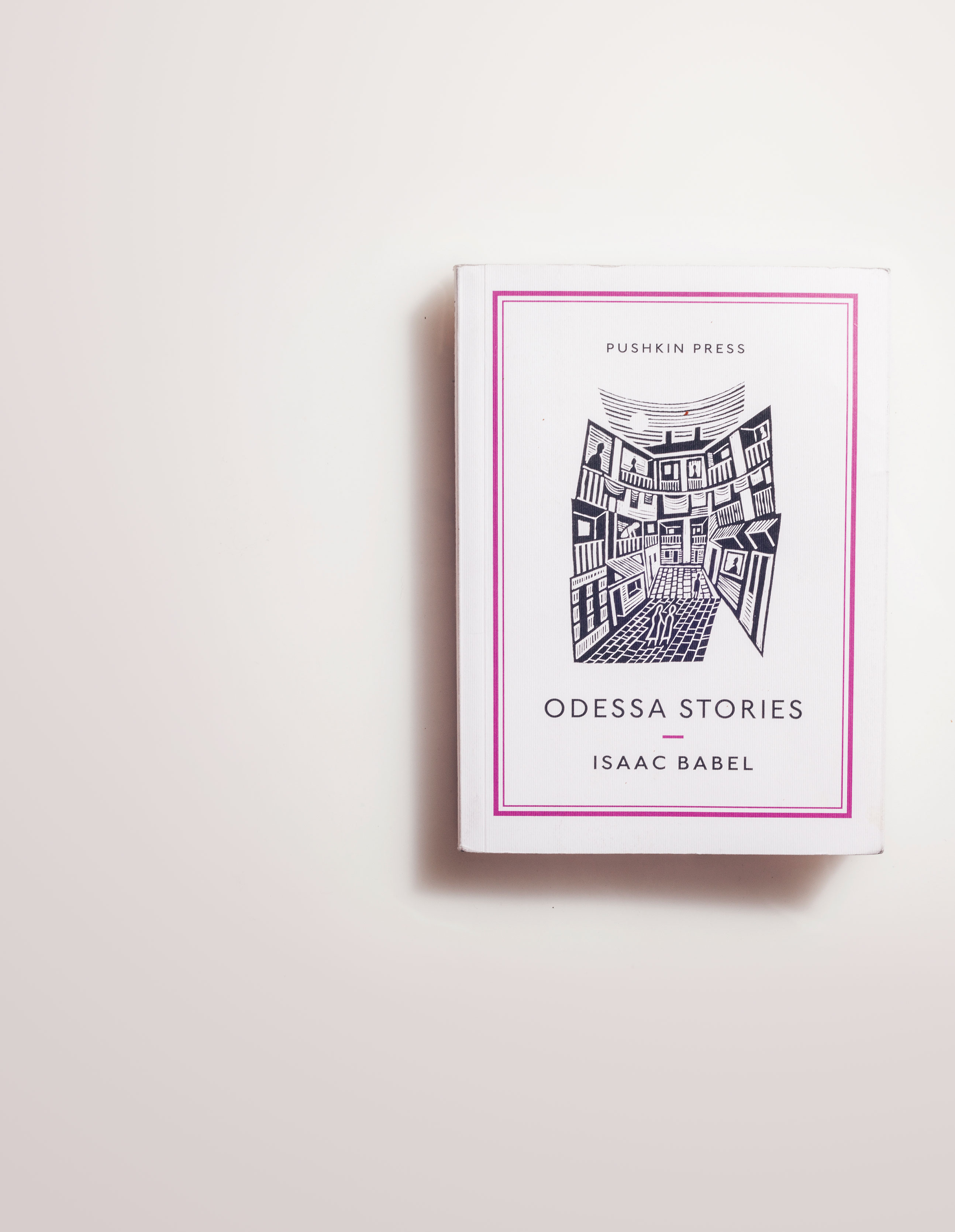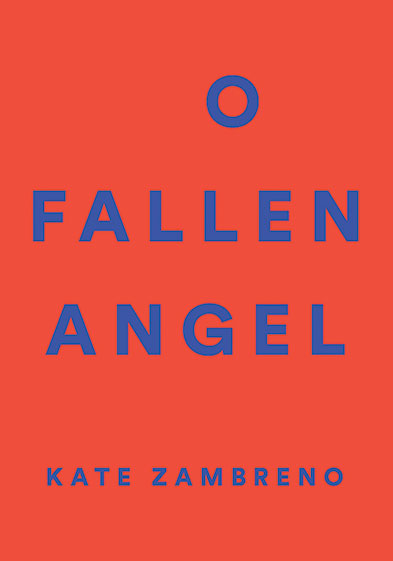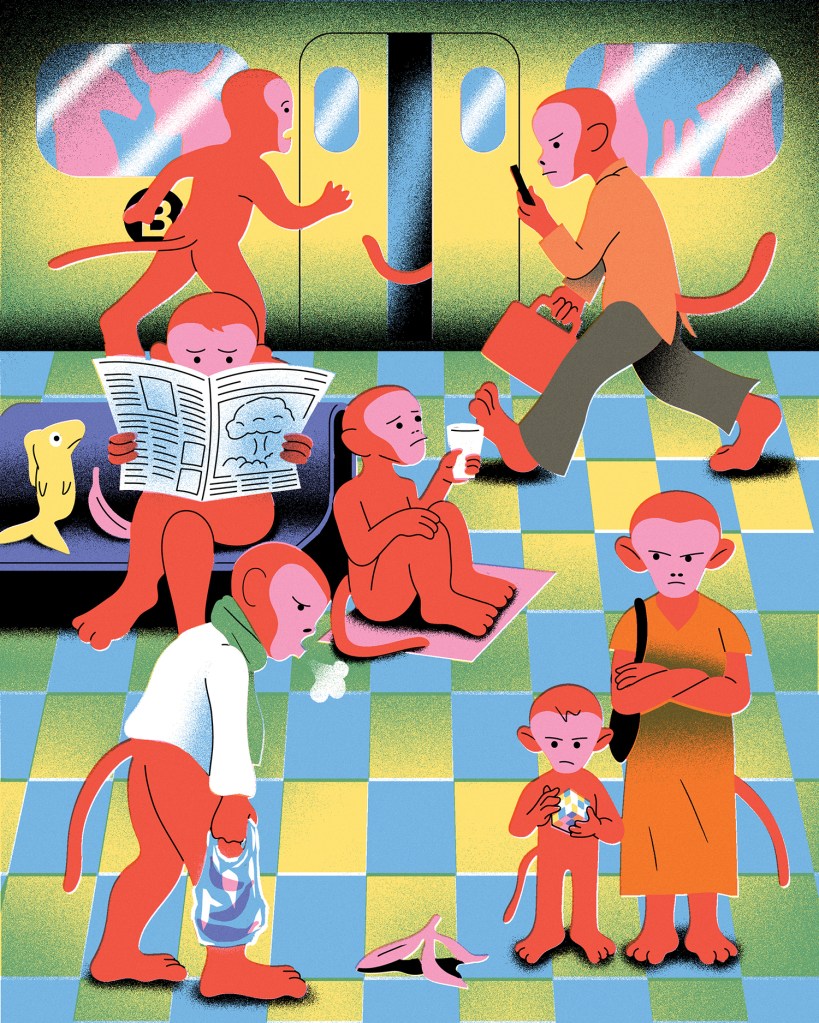These reviews appear in the March issue of VICE magazine. Click HERE to subscribe.

ODESSA STORIES
Isaac Babel
Pushkin Collection
Videos by VICE
“Odessa is a nasty place,” Isaac Babel wrote. “Everybody knows that.” A center of economic activity and home to one of Europe’s largest Jewish populations in the late 19th century, Odessa was called the “Russian El Dorado.” Thieves and pimps thrived in this port city on the Black Sea, and its Jewish gangsters gained fame throughout Russia for their daring and wealth.
The Odessa tales of Isaac Babel, born in 1894 and considered one of Russia’s best short-story writers, portray the violent and occasionally noble deeds of criminals in the author’s hometown. His gangsters are at once ferocious and hapless, depraved yet observant of Jewish traditions, full of wisdom and wisecracks. In the poor neighborhood of Moldavanka, men have names like Misha the Bullseye, Kolka the Pin, and Mendel the Pogrom. An innkeeper pounds a man’s face “as if it were a tambourine, holding him up with her other hand”; her cook, who procures prostitutes for male guests, rocks a baby in a cradle while reading about the Baal Shem Tov, the founder of the ultra-Orthodox Hasidic sect of Judaism. The same streets that “blackened the sky with the melting, poverty-stricken smoke of [their] kitchens” also conceal contraband from all over the world: “cigars and delicate silks, cocaine and metal files, loose-leaf tobacco from the state of Virginia and black wine purchased from the island of Chios.”
Russian Jews were second-class citizens, and in Odessa, some lived according to their own laws. “My honor,” says the ruthless mob boss Benya Krik, “is dearer to me than happiness.” When Benya, the hero of many of Babel’s stories, learns during his sister’s wedding that a raid is imminent, he has the police building burned, only to become disconsolate when his guests leave to watch the fire. Benya is vicious but principled; he stays in power by inspiring both fear and respect. “If the sky and the ground had rings attached,” one admiring Odessan says, Benya would “grab those rings and pull them to the ground.”
The salty speech of the city’s inhabitants is wonderfully rendered in a new translation by Boris Dralyuk, who preserves the characters’ Yiddishisms (“He doesn’t talk much, but when he talks, you want he should keep talking”) and imbues the dialogue with hard-boiled language reminiscent of Dashiell Hammett (“Buzz off, coppers… or we’ll flatten you”). Although Babel mostly lets characters speak for themselves, the narrators’ descriptions can be as luxurious as the stolen jewels given to Benya’s sister on her wedding night, or as surprising as a slap in the face. “A sunset boiled in the sky,” Babel writes, “a sunset as viscous as jam”; elsewhere, wine “smelt of sunshine and bedbugs.”
In this collection, Dralyuk includes Babel’s semi-autobiographical stories about his childhood in Odessa. These stories,on youthful desires and the kvetching of family members, trace a boy’s growing awareness of the world around him. After witnessing a pogrom in 1905, a time of great unrest in Russia, the young Babel senses that “far away disaster galloped along this very earth on a big horse.” In 1920, during the Polish-Soviet War, he confronted disaster, riding on horseback with a Cossack unit of the Red Army while contributing propaganda to the army’s daily newspaper. This experience inspired his masterful collection Red Cavalry, which won him fame and privileges in the USSR. Privately, however, he had been horrified by the behavior of the Soviet soldiers: “They all say they’re fighting for justice and they all loot,” he noted in one diary entry from the war.
Babel wrote his Odessa stories during the 1920s, and the tales set after the Russian Revolution depict with ironic skepticism the new government’s efforts to impose a communist system on gangsters and religious Jews. In one story, a Soviet partisan returns from a trip to find that his devout mother-in-law had his newborn son circumcised, so he has her prosecuted in a show trial. The proceeding turns into a kangaroo court, and the narrator, who has been watching it in the gallery, addresses the infant in a despairing whisper: “I’ve got to believe you’ll be happy… I’ve got to believe you’ll be happier than me.” Although Babel welcomed the revolution, he saw the Soviets as violently opposed to the code of honor that existed among the Odessa gangsters and recklessly indifferent to Jewish history. He once wrote, “We are born for the pleasure of work, fighting, love, we are born for that and nothing else”; though the Bolsheviks in his stories fight and work, they lack love.
Babel never fled Russia yet felt stifled by its authoritarianism. Despite his attempts to ingratiate himself with Stalin’s regime, he fell under increasing suspicion in the 1930s. The unfavorable portraits of Bolsheviks in his stories, their precise observations of Russian life, and their irrepressible merriment made him a political target. Babel was arrested in 1939 and convicted the following year of being a Trotskyite, terrorist, and spy; he was executed after renouncing an earlier confession to crimes he didn’t commit. “Kill them with irony,” one character in Odessa Stories warns another. “Only humor kills.” —ANDREW KATZENSTEIN

ZONZO
Joan Cornellà
Fantagraphics
If you’ve been reading VICE for longer than 12 months (which, let’s be honest, is all of you), then you’ll remember that we have a sweet penchant for aggressively violent, vile, absurd, and gross comics. It’s our bread and butter. That’s why Catalonian cartoonist Joan Cornellà’s warped, heartbreakingly horrible paintings are perfect for us. To talk about his book ZONZO, we have to first acknowledge the phenomenon of the web comic. Web comics have changed their tack in recent years. Where there were once the rampant pedophile gags of Morning Glory and quasi-intellectual anthropomorphized dinosaurs, there are now chintzy motivational messages from cats sitting in teacups shared ad infinitum on your mother’s Facebook wall. Cornellà’s popularity exploded on Twitter, the one-to-six-frame format of his wordless circus of smiling agony perfect for the site’s sharable mechanics, and so this book, the American edition of one released in Europe beforehand, though different from last year’s Mox Nox, is the natural end, as it is for all internet fame.
It’s Cornellà’s splicing of detestable horror and his wink to online-comic tropes (such as zooming in on a character’s face in each panel), as well as the medium of paint, that make his work so bizarrely compelling. They’re callbacks to a wilder time in internet culture, one of seedy and extreme violence, built for teenagers but guiltily enjoyed by adults too. ZONZO is a compilation of macabre joys. All characters are either murderers, hideously disfigured, set on fire, shot, stabbed, have their heads replaced by those of giant, smiling dogs—but it’s how they execute these terrible things that make it so funny. A man is given some ice cream, but it’s made of viscous pink liquid emanating from the giver’s penis. The receiver is then revealed to be the bloody hand puppet of a clown. All the while, everyone retains their demented grins.
It’s important to note that ZONZO isn’t just mindless crassness. Some of the comics here are more muted and arty, with a different color palette. Then again, how arty can a testicle-bird emerging from a man’s head be? —JOE BISH

O FALLEN ANGEL
Kate Zambreno
Harper Perennial
Nearly a decade before suburban America helped give us President Trump, Kate Zambreno captured its idiocy and parochialism in her debut novella, O Fallen Angel. Its reissue couldn’t have come at a better time. The three principal characters are Malachai, Mommy, and Maggie: a schizophrenic false prophet raging against consumerism, a dim Catholic housewife with control issues, and her daughter, who’s into sex, drugs, and existentialism. They live in a vacuum of culture, stimulation, and meaning—suburban Illinois in the mid aughts. Mommy believes that that her Mexican cleaning lady will rob her, that homosexuals exist only to rape children. Maggie obsesses over aloof boys and being “different.” When that gets boring, she overdoses on medication, careful to put a “:)” in her suicide note before calling 911. Zambreno’s characters speak in a hysteric barrage of clichés, a means of revealing the grotesqueness of a seemingly familiar part of American life. But in the moments when she relents, her writing is lovely, as when Malachai self-immolates, “The distorted groans of an impassioned martyr. Hurled headlong flaming from the sky. There fell a great star from heaven, burning as if it were a lamp.” —MALCOLM THORNDIKE NICHOLSON

RESIDENT EVIL 7
Capcom
Playing a Resident Evil game used to mean looking for a night-light afterward, but over the years, the horror series lost its way. Resident Evil 7, though, represents a bold reinvention for a franchise that’s been looking for new meaning. Switching to a first-person perspective and doubling down on scares, Resident Evil 7 shouldn’t be missed. Though technically the seventh game in the Resident Evil series, newcomers are welcome; this game largely ditches the complicated storylines of the past. Set within the depths of a Louisiana swamp, players are chasing a missing girlfriend. It doesn’t take long to find her, but there’s a catch: She’s held hostage by freaks straight out of The Texas Chain Saw Massacre. The first-person viewpoint gives Resident Evil 7 an unnerving intimacy, bolstered by players having precious little to fight back with. You’re constantly scrounging for bullets and supplies, as the family stalks your every move. It’s even worse in VR, a feature that’s so far exclusive to the PlayStation 4 version. But if you have access to PlayStation VR, make use of it. It’s intense. Though Resident Evil 7 doesn’t quite stick the landing—sometimes, mysteries are better left unexplained—it’s still a ride well worth taking. Just be warned: This time, you might actually be reaching for the night-light again. —PATRICK KLEPEK

HOPE ATTRITION
Woe
Vendetta Records
Hope Attrition is Woe’s first new album in four years, and it feels very much like a rebirth. The Philadelphia-turned-scattershot black-metal entity has changed a bit since its last release, 2013’s Withdrawal (Candlelight Records); now joined by drummer Lev Weinstein and guitarist Matt Mewton, Hope Attrition shows that the core duo of founder Chris Grigg and bassist Grzesiek Czapla have fully harnessed their powers. On their Vendetta Records debut, their now-familiar thorny, dynamic riffs, stunning melodies, and icy blasts coalesce into an ironclad whole, finally achieving the cohesion they’ve been searching for since the project’s lonely birth in Grigg’s old Philadelphia bedroom. Woe has always been a harshly emotional entity, but here, the dominating force is pure, seething fury. The surging immediacy of standout track “No Blood Has Honor” dovetails with its anti-fascist message, raging against joyless ideologues as Grigg howls “Fear consumes / Fear controls / Fear belies your ambition,” drawing out the words in a serrated gargle. He hammers the point home on “Drowning in Greatness,” an anti-Trump screed written in blood about “a man who bore a movement / Like a drill into the head of peace.” Explicitly anti-fascist black metal isn’t new, but as the divisions rending the rest of American society continue to grow, the equally fractured metal community needs bands like this to rally behind. —KIM KELLY

SMOKE
John Berger & Selcuk Demirel
Notting Hill Editions
The novelist, poet, and art critic John Berger’s final book is an illustrated parable about smoking. The narrative is simple. The presence of smoke once signaled positive endeavor: A shared cigarette in Berger’s younger days was an excuse to “[exchange] views on the world,” “describe journeys,” and “discuss the class struggle.” Smoke was the atmospheric condition of a social life. But, suddenly, it became a menace. Smoking was deemed a shameful activity and banished. Demirel’s illustrations shift from pastoral scenes to images of deadly pollution. Smokers became inadvertent killers, “meanwhile / the heating of the planet / through carbon monoxide / continued / unabated.” Although the prose of Smoke is typical Berger—declarative and aphoristic—there is a tone of wistfulness that is not. The longing isn’t reactionary but for a politics that this represented, snubbed out in the 20th century, which was oriented toward the future. A smokeless society is one without collective struggle. In the epilogue, some explorers get lost in the Arctic and lose their sense of history, “suspecting that only dogs and ice existed in the world.” They become jubilant when they see the smoke of Inuits rising over the horizon. —YOHANN KOSHY




